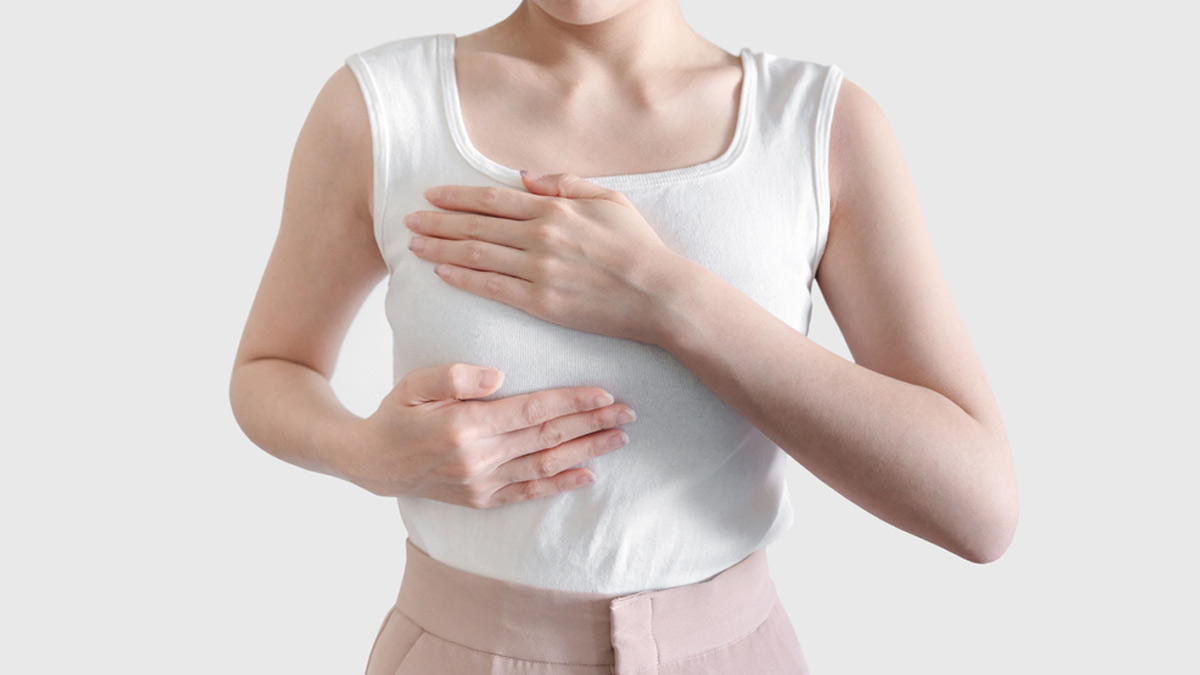
Breast pain can arise from various causes, ranging from hormonal fluctuations and benign cysts to infections and improperly fitting bras. While most causes of breast pain are benign and manageable, persistent or severe pain should be evaluated by a healthcare professional to rule out any serious conditions and to obtain appropriate treatment. Understanding the potential reasons for breast pain can help in taking proactive steps to alleviate discomfort and maintain breast health.
Table of Content:-
To understand the common causes of breast pain, OnlyMyHealth interacted with Dr Pooja C Thukral, Associate Director, Department of Obstetrics and Gynecology, Cloudnine Group of Hospitals, Faridabad.
Dr Pooja said, “Breast pain, also known as mastalgia, is a common issue experienced by many women at different stages of life. It can range from mild discomfort to severe pain and can affect one or both breasts. Understanding the potential causes can help in managing and alleviating the discomfort. Stress, caffeine and smoking can also cause mastalgia.” Here are some common reasons for breast pain listed by Dr Pooja.
1. Hormonal Fluctuations

Hormonal changes are one of the most frequent causes of breast pain. These fluctuations can occur due to various reasons:
Menstrual Cycle: According to Dr Pooja, many women experience cyclical breast pain linked to their menstrual cycle. “This pain typically starts a few days before menstruation and subsides once the period begins. The hormonal changes involving estrogen and progesterone can cause the breast tissue to swell and become tender,” she said.
Pregnancy: During early pregnancy, hormonal changes can cause the breasts to feel sore and tender as they prepare for milk production.
Menopause: Hormonal changes during perimenopause and menopause can also lead to breast pain. This pain is often non-cyclical and can occur at any time.
Also read: Obesity: A Risk Factor For Breast Cancer?
2. Breast Cysts
“Breast cysts are fluid-filled sacs within the breast tissue that can cause pain and tenderness. They are common in women aged 30-50 and can vary in size. While some cysts are small and go unnoticed, larger ones can be painful and may feel like a lump in the breast,” Pooja said, adding, “The pain may increase with the menstrual cycle as hormonal changes can cause cysts to enlarge.”
3. Fibrocystic Breast Changes

Fibrocystic breast changes involve the presence of fibrous and cystic tissue in the breasts. Dr Pooja noted that these changes are benign (non-cancerous) and can cause the breasts to feel lumpy, swollen, and tender, particularly before menstruation. This condition is quite common and can cause varying degrees of pain.
4. Breast Injury or Trauma
Any injury or trauma to the breast, such as a blow or a bruise, can lead to pain. The pain from an injury can be localized and may be accompanied by swelling or bruising. Even if the injury seems minor, it can still result in significant discomfort.
5. Infections
Breast infections, such as mastitis, are more common in breastfeeding women but can occur in others as well. Explaining how it is caused, Dr Pooja said, “Mastitis causes the breast tissue to become inflamed and infected, leading to pain, redness, and swelling. Other symptoms may include fever and chills.”
6. Medications
Certain medications can cause breast pain as a side effect. These include:
Hormonal Therapies: Hormone replacement therapy and birth control pills can lead to breast tenderness due to the hormonal components they contain.
Antidepressants: Some antidepressants can cause breast pain as a side effect.
Cardiovascular Drugs: Certain heart medications may also contribute to breast discomfort.
Also read: Breast Cancer: How Does Breast Cancer Affect Your Body?

7. Improperly Fitting Bras
One of the most common issues that several women face is due to bras with improper fitting. Dr Pooja agreed, “Wearing bras that do not fit properly can cause breast pain. A bra that is too tight can compress the breast tissue, leading to discomfort, while a bra that is too loose may not provide adequate support, causing strain on the breast tissue and chest muscles.”
8. Breast Cancer
While breast pain is not typically a common symptom of breast cancer, it can sometimes be associated with certain types of breast tumors. It's essential to be aware of other signs, such as lumps, changes in breast shape, skin dimpling, or nipple discharge, and consult a healthcare provider if these occur.
Management of Mastalgia
1. Decrease caffeine intake
2. Wear well-fitting bras
3. Reconsider changing any medication causing mastalgia
4. Vitamin E supplements
5. Evening primrose oil
6. For pain paracetamol, ibuprofen, Naproxen and aspirin may be needed.
7. Avoid tobacco.
8. Relaxation techniques to reduce stress.
It's better to take treatment after you have been examined by your doctor.
Also watch this video
How we keep this article up to date:
We work with experts and keep a close eye on the latest in health and wellness. Whenever there is a new research or helpful information, we update our articles with accurate and useful advice.
Current Version